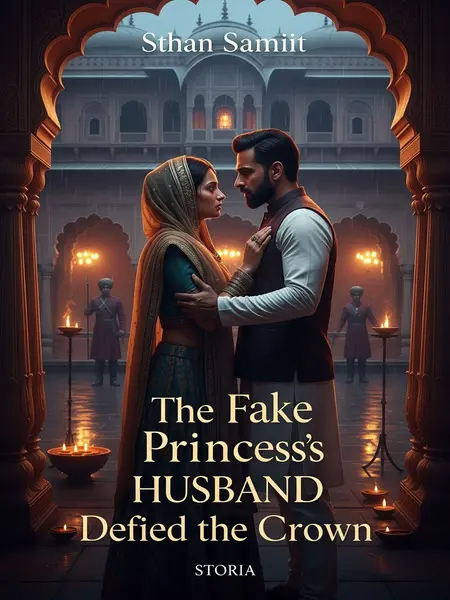Chapter 2: A New Shelter
Early spring, third month: Lucknow’s civil service examination season. Scholars from every corner of Bharat had come, hoping for a place in the prestigious hall every student dreams of. In a small lodge, a tall, cheerful young man burst in, his face glowing with pride.
Outside, sunlight filtered through neem leaves, and a gentle breeze carried the aroma of samosas from the tea stall. The city hummed with anxious parents and hopeful students, temple bells ringing somewhere in the distance.
"Ishaan! Suno, I did it!"
"Tenth rank! I got tenth rank!"
I had just set down the laundry when Amit rushed to hug me. Usually so reserved and proper, always speaking politely, now he clung to me like a child, refusing to let go.
His shirt still smelled faintly of ink and exam hall dust as he pressed his cheek to mine. I laughed and patted his back. Suddenly realising himself, he stepped away, stammering apologies.
I covered my mouth and scolded, "Arre, Amit, kitna pagal hai tu!" making him blush so red he wouldn’t meet my eyes. His ears pink, he fiddled with the corner of his kurta, mumbling, "Arre, Ishu, maaf kar de yaar. Bahut badi galti ho gayi."
Three years ago, after escaping by faking my death, I was almost sold off by swindlers. Amit saved me and brought me home. He lived with his mother, whose legs were crippled, and they had little. That first night, he sat behind the door all night, keeping watch.
That tiny room, lit by a single bulb and the dull glow of a mitti ka diya, became my shelter. I remember Amit rubbing his mother’s feet, telling her stories as I lay awake, heart pounding with hope and guilt. The air was thick with the smell of haldi, the slow whir of an old fan, and the soft sound of a son caring for his mother.
Feeling guilty, I left him my only silver payal and slipped away quietly. But I didn’t realise how cruel the world could be. Without money, you can’t even take a step. When I was falsely accused of theft and taken to the police station, Amit appeared again. His not-so-broad shoulders shielded me, and his usual scholarly calm vanished as he argued fiercely on my behalf.
My mouth went dry as the inspector’s glare pinned me in place. I thought of the stories Amma used to tell—about justice, about fate—and wondered if anyone would believe a girl with no name. The inspector shouted, the room reeked of stale tea, and sweat trickled down my back as Amit’s gentle voice rose with surprising force. In that cramped office, paint peeling from the walls, he was my only pillar.
For the first time, I understood: when the Maharani and Crown Prince let me suffer, saying rules were more important than my pain, I had to swallow injustice. But when someone truly cares, they’ll never let you be wronged.
I remembered the cold marble floors, the echo after each scolding, and realised the warmth Amit gave me was a luxury denied to those without a family name.
So this time, I didn’t run. I followed Amit home. To repay him, I helped with chores. A year ago, when his mother was gravely ill, we married in her presence. But we never consummated the marriage.
Our wedding was simple—a marigold mala, a handful of rice, and his mother blessing us from her wooden cot, tears shining in her eyes. There was no dhol, no guests, just the mantras and the faint tick of the wall clock.
He said, "Ishaan, you must be from a good family. I don’t know why you’ve had to come here, but I won’t wrong you. Once I pass the exams, I’ll give you a proper wedding with all the rites. If I fail, I’ll treat you as my sister and find you a good match."
His words weren’t the empty promises you hear in movies. Amit’s face was so open, so honest it almost hurt to look at him. I rolled my eyes and called him filmy, but his sincerity warmed me. He always keeps his word. What he did just now was already a big step for someone as reserved as him.











